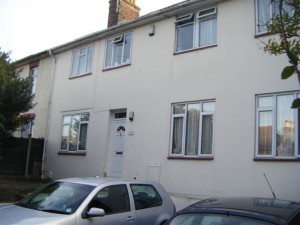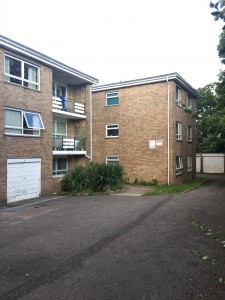Our Services
| Full Management with ‘Rent on Time’ | 13% |
Our full management service is available for professional & student lets. Go Let will secure a tenant and act on your behalf dealing with all aspects of the tenancy including marketing and tenant finding to administration, maintenance and property management to tenancy closure.
Crucially, this comprehensive service will ensure that your rent is paid on time, each month, regardless of whether the tenant defaults in their payments. Also included, are all legal costs in relation to any eviction proceedings if this were necessary. More information on Rent On Time is attached Rent on Time Leaflet & Full Management Leaflet
| Traditional Full Management (without Rent on Time) | 10% |
As above, our full management service is available for professional & student lets, but without the Rent on Time service. We will secure a tenant and act on your behalf dealing with all aspects of the tenancy including marketing and tenant finding to administration, maintenance and property management to tenancy closure.
| Tenant Find Only | £650 |
This is our basic service, securing and vetting a tenant and carrying out the process of move in, for a one off fee. All other aspects of the management of the tenancy can then be administered by you.
| HMO Multi-Let Full Management (Rent on Time not available for Multi-Let) |
POA |
All property where three or more people live together, who are not related, is a House in Multiple Occupation (HMO). This does not necessarily mean that you require an HMO Licence.
Only houses with three or more storeys and five or more people residing there are licensable HMO’s. A licence lasts for up to five years and costs around £700.00.
It is important to appreciate that it is a legal requirement to have the correct licence in place, if one is required for an HMO and that penalties of up to £20,000 can be levied against landlords in violation of these obligations. Furthermore, it is important to understand that there are also required standards to be met and obligations upon landlords of non-licensable HMO’s, which are enforceable by the local council.
Over the last 5 years, Go Let has fully managed 22 HMO’s with up to 20 bedrooms in some. We have experience with the local council housing, environmental health and planning departments and we are well versed in council expectations.
Multi-Let property can be extremely profitable, if set up and managed correctly. Go Let have very high levels of occupancy and achieve the best possible rent for each room.
For more information, please call or visit the office to speak to Martina.
| Landlord Services | |
| Tenancy Agreement (Compulsory for Full Management & Rent Collection with Rent on Time) |
£50.00 |
| EPC (All properties must have a valid EPC report*) |
£65.00 |
| Gas Safety Certificate (All properties must have a current Gas Safety Certificate*) |
£60.00 |
| Key Cutting | From £7.00 |
| Inventory | ||
| (Compulsory with Full Management) | Unfurn | Furn |
| STUDIO FLAT | £70.00 | £80.00 |
| 1 BED | £85.00 | £90.00 |
| 2 BED | £95.00 | £100.00 |
| 3 BED | £105.00 | £110.00 |
| 4 BED | £115.00 | £120.00 |
| Electrical Safety Certificate | |
| (Cost shown is minimum expected. Actual cost depends on the individual property*) | |
| STUDIO FLAT | £90.00 |
| 1 BED FLAT | £114.00 |
| 2 BED FLAT | £138.00 |
| 2 BED HOUSE | £150.00 |
| 3 BED HOUSE | £174.00 |
| 4 BED HOUSE | £198.00 |
Further Information
Tenancy Agreements
A tenancy agreement is an Assured Shorthold Tenancy (AST). We utilise two different agreements, based on the different levels of management that we offer.
Where Rent on Time is employed, an AST is provided by “Rent on Time”.
All other agreements we use are provided by the National Landlords Association (NLA).
For our Tenant Find Only service, where a Landlord chooses to provide their own AST, we cannot accept any responsibility for the content of that AST. We highly recommend landlords to use our NLA agreement.
Gas Safety Certificate
The Gas Safety (Installation & Use) Regulations 1998 state that, the Landlord is responsible for the safety of tenants and must ensure that all gas appliances, fittings and flues have been installed, maintained, serviced and tested for safety by a qualified GasSafe engineer.
A 12 monthly check must be carried out on every gas appliance and flue and a record must be supplied to your tenant within 28 days of the check being completed, or to new tenants on or before move in. A record of gas safety certificates must be kept for a minimum of two years.
EPC (Energy Performance Certificate)
You must order an EPC for potential tenants before you market and rent your property.
An EPC gives a property an energy efficiency rating from A (most efficient), to G (least efficient) and is valid for 10 years.
An EPC contains information about a property’s energy use and costs and recommendations about how to reduce energy use and save money.
Go Let can provide an EPC report through one of our service providers.
Electricals & Furnishings
If you let a property, you must ensure that the electrical system and all appliances supplied are safe. Failure to comply with the Electrical Equipment (Safety) Regulations 1994 and The Consumer Protection Act 1987 is a criminal offence.
It is also your responsibility to ensure that all upholstered furniture complies with the Furniture & Furnishings (Fire) (Safety) Regulations 1988. This regulation refers to levels of fire resistance for domestic upholstered furniture and furnishings.
Each item of furniture or furnishing will have a label attached stating compliance with the regulations. All new furniture must carry a display label at point of sale. Furniture which has no permanent label should be assumed not to comply.
Deposit
The United Kingdom Housing Act 2004 states that every landlord or letting agent that takes a deposit in connection with an AST in England & Wales, must join a tenancy deposit scheme. These regulations came in to effect in April 2007 and were amended by the Localism Act 2011, taking effect from 6th April 2012.
The landlord or letting agent has 30 days from receipt of the deposit to provide the details of the scheme they are using, (known as the Prescribed Information).
Go Let are registered with and use the Deposit Protection Service (DPS).
Inventory & Check Out
An inventory is an itemised list of contents and condition at the property prior to new tenants occupation. A check out is the same list examined after the tenants have moved out. From this, a report can be made to establish any differences attributable to the tenant, during their occupation.
The deposit held against a tenancy always remains the tenants property and therefore the onus is on the landlord, to produce evidence to justify any deductions proposed with valid proof.
The importance of a properly completed, independent inventory cannot be overstated. Tenancy deposit scheme adjudicators do not dismiss out of hand inventories prepared by landlords, but they are likely to place less confidence in their contents, jeopardising any case the landlord may have to make deductions.
Go Let use a well established, local, reliable inventory service, producing high quality inventories and check out reports.
Insurance
All landlords wishing to rent out their property should have adequate buildings insurance in place beforehand. It is likely that you already have this in place, as you will be required to do so by your mortgage lender, but we can provide details of buildings and landlords contents insurance if you require it.
Maintenance, Repairs & General Standard of the Property
Property to be let out should be presented in a safe, clean and reasonable order for letting. Repairs and ongoing maintenance should not be neglected and urgent works, especially where unsafe should be attended to in a timely manner, by both landlord and tenant.
Non-resident Landlords
The Non-resident Landlords Scheme is a system for taxing the UK rental income, of those who have a usual place of abode outside the UK. UK lettings agents are required to deduct basic rate tax from the rental income of Landlords who live outside the UK and to calculate and pay this tax, each quarter, to the Inland Revenue Accounts Office.
The Revenue regards those who are absent from the UK for 6 months or more as having an abode outside of the UK, which means that a person can be a UK resident, and still be a Non-resident Landlord.
Landlords living abroad or planning to move abroad, can apply to receive their rent with no tax deducted by completing the NRL1 form, which is available by phoning 0151 4726208/9 or at: http://www.hmrc.gov.uk/cnr/nrl1.pdf. However, although the agent may not need to deduct the tax, the income still remains liable to UK tax and must therefore be included in the Landlords Tax Return.
Property expenses may be deducted prior to calculating the amount of tax to deduct, but letting agents must deduct basic rate tax, unless the Inland Revenue has told them not to do so.
Right to Rent
From the 1st February 2016, “Right to Rent” checks became effective all over England.
It is now a legal requirement in all areas of England, to check all tenants immigration status before the commencement of their tenancy. If the “Right to Rent” checks are not carried out, landlords could face a fine of upto £3000.
Landlords will need to do the following to comply with the new regulations:
- Check all adult tenants who live in the property as their only or main home. (This includes adults who are not on the tenancy agreement, but live at the property)
- Request original documents from the tenants, showing they have the right to be in the UK
- With the tenant present, make sure the documents are valid (verify dates, name and likeness)
- Keep copies of the documents and record the date you made the check
Further checks will be required if a person has a restriction on their right to stay in the UK. If the tenants’ permission to stay in the UK is limited, further checks will be required by the later date of either:
- Just before the expiry of the date of their right to be in the UK
- 12 months after your first check
If you find your tenant no longer has the right to rent, you are required to make a formal report to the Home Office, which can be done by filling out an online form.
How to Rent
Effective for tenancies commencing 1st October 2015 onwards, new legislation surrounding the Section 21 notice procedure means that the “How to Rent” leaflet must be issued at the outset of an agreement to rent a property, anywhere in England.
If you fail to provide the leaflet to the tenant, at the point of initial agreement to let the property and to keep a record that they have received it, then you will be unable to issue a Section 21 notice to evict your tenant.
You can either provide a hard copy, or send it by email where,(signed consent to receive it and other notices by email is obtained).
The leaflet has already undergone one update on 2nd February 2016, so it is important to make sure that you are always issuing the latest version, which can be obtained here:
https://www.gov.uk/government/publications/how-to-rent
In addition to this, where there has been an updated version of the leaflet since the outset of the tenancy and when a tenancy renews or reverts to a periodic tenancy, the leaflet must be reissued to the tenant.
Issuing Certificates – Current Gas Safety & Energy Performance Certificates
Since 1st October 2015, Landlords or their Agent appointed in writing to do so, must ensure that a valid Energy Performance Certificate and Gas Safety Certificate has been, given free of charge to the person who ultimately becomes the tenant of their property. This includes HMO rooms, even though the tenants do not pay the bills in HMO’s.
If you do not comply with this regulation, you will not be able to issue a Section 21 notice to your tenant. It is also required to reissue the relevant certificates upon issuing a Section 21 to end the tenancy.
This can be done by hard copy or, where signed consent has been obtained, by email.
Deposit Protection – Lodging Deposit & Issuing the Prescribed Information
Where there is an Assured Shorthold Tenancy (AST), the landlord or his appointed agent must protect the deposit with one of the three authorised tenancy deposit schemes, and serve ‘prescribed information’ within 30 days of payment of the deposit money.
If the deposit is not protected,the landlord will be vulnerable to being sued by the tenant for a penalty of between one and three times the deposit sum and the landlord will not be able to serve a section 21 notice unless the deposit money is returned to the tenant.
Smoke Detector Testing
From October 1st 2022, the Smoke and Carbon Monoxide Alarm (Amendment) Regulations came into effect.
In short Landlords are required to install and test, on the day of move in, smoke alarms on each floor of residential occupancy, within a house. Also, landlords of properties with existing tenancies are required to install fire alarms on each floor, if not already installed.
If the alarms are not checked on the day the tenancy begins, the landlord will face a fine of up to £5,000.
Solid Fuel Carbon Monoxide Alarms
From October 1st 2022, the Smoke and Carbon Monoxide Alarm (Amendment) Regulations came into effect.
Landlords are required to fit carbon monoxide alarms in any room used as living accommodation which contains a fixed combustion appliance (excluding gas cookers).








